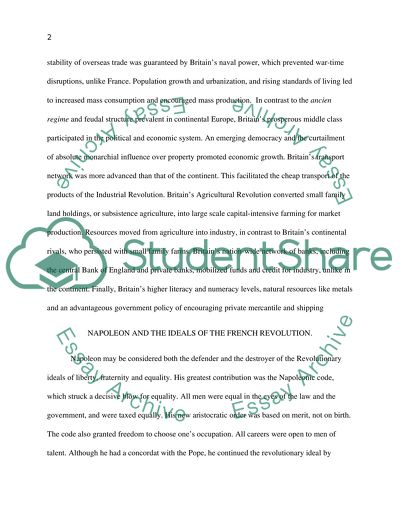The Age of Enlightenment Essay Example | Topics and Well Written Essays - 500 words. https://studentshare.org/history/1553180-european-states-in-18th-century-the-french-revolution
The Age of Enlightenment Essay Example | Topics and Well Written Essays - 500 Words. https://studentshare.org/history/1553180-european-states-in-18th-century-the-french-revolution.


